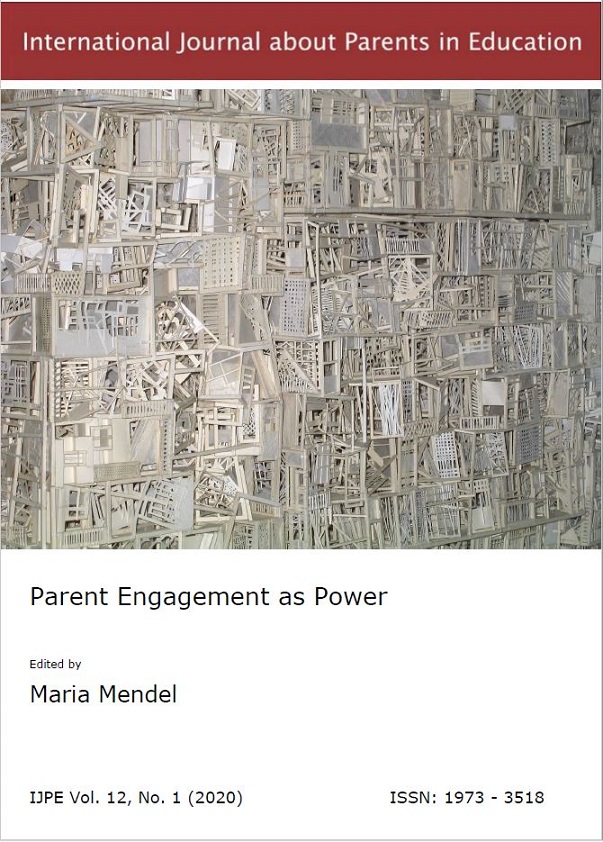Foreword
DOI:
https://doi.org/10.54195/ijpe.14107Abstract
The volume presented here would not have been possible without the 12th Biennial Conference of the European Research Network About Parents in Education (ERNAPE) that took place in Gdansk on September 18-20, 2019: Parent Engagement as Power: Empowering Children, Schools and Societies1 . Most of the articles presented in the volume are papers delivered at the conference and later modified as a result of conference discussions and peer reviewing. As it was stated in the conference book, the message embedded in the network’s name is that parents are part of education (Mendel 2019: 9). Following the message of Theodore Brameld's book Education is Power, one can say that parents are those who share and shape its force (1965). This broad issue has a complex nature that needs to be examined. On the one hand, we should see parents as citizens whose engagement is crucial in acts of direct democracy: from their “voting with feet” while they make decisions concerning the choice of educational institutions, to their sustained work in social movements and organizations like Sanctuary Schools, Alliance to Reclaim Our Schools, Our Cities Our Schools, etc. This points to the complex relations between private lives and political activism. As schools have become subject to controversial policies, like those connected to urban marketing or gentrification and school closures, being a parent shows its political face in a direct way probably unknown to previous generations.





